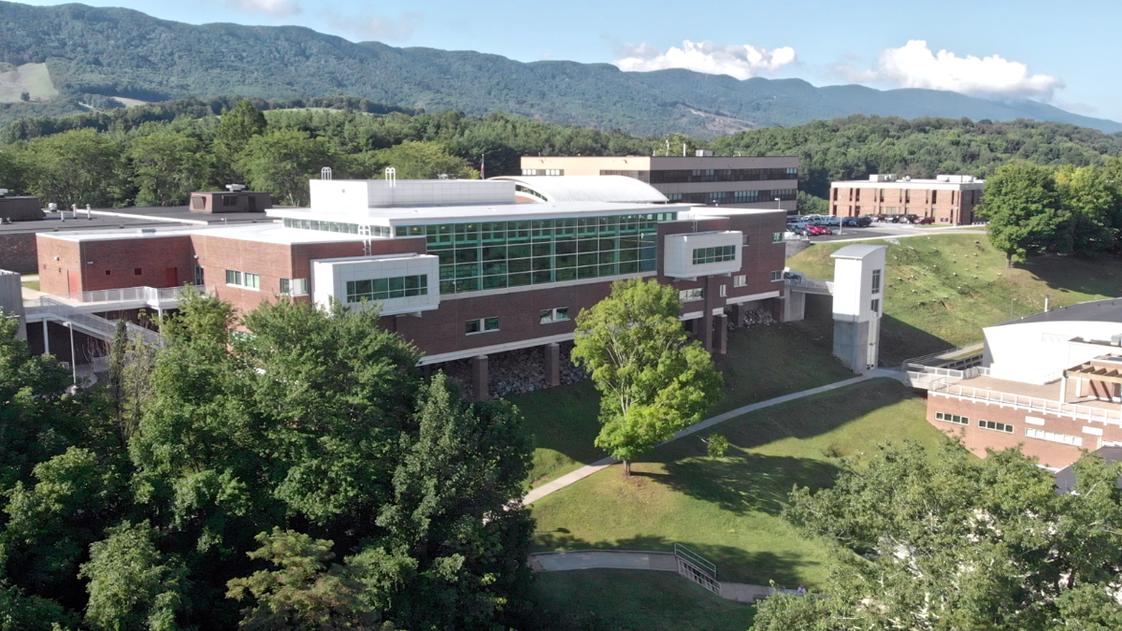- Southwest Virginia Community College is a two-year institution of higher education established as a part of a state-wide system of community colleges serving primarily the residents of the counties of Buchanan, Dickenson (partial), Russell and Tazewell. The College operates under policies established by the State Board for Community Colleges and the Local College Board. The institution is financed primarily by State funds supplemented by contributions from the participating localities.
School Highlights
Southwest Virginia Community College serves 2,945 students (40% of students are full-time).
The college's student:teacher ratio of 43:1 is higher than the state community college average of 23:1.
Minority enrollment is 13% of the student body (majority Black and Hispanic), which is less than the state average of 53%.
Quick Stats (2025)
- Enrollment: 2,945 students
- In-state tuition: $3,594
- Out-state tuition: $7,996
- Student:teacher ratio: 43:1
- Minority enrollment: 13%
- Source: Verified school update
Top Rankings
Southwest Virginia Community College ranks among the top 20% of public schools in Virginia for:
Category
Attribute
Affordability
School Resources
School Overview
The teacher population of 68 teachers has stayed relatively flat over five years.
Southwest Virginia Community College
(VA) Community College Avg.
Carnegie Classification
Associate's Colleges: Mixed Transfer/Career & Technical-Mixed Traditional/Nontraditional
Associate's--Private For-profit
Institution Level
Less than 2 yrs
At least 2 but less than 4 years
Institution Control
Public
Private, non-profit
Total Faculty
68 staff
129 staff
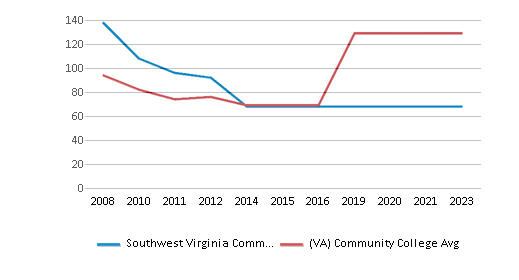
Student Body
The student population of Southwest Virginia Community College has declined by 5% over five years.
The student:teacher ratio of 43:1 has decreased from 46:1 over five years.
The Southwest Virginia Community College diversity score of 0.24 is less than the state average of 0.71. The school's diversity has grown by 512% over five years.
Total Enrollment
2,945 students
1,350 students
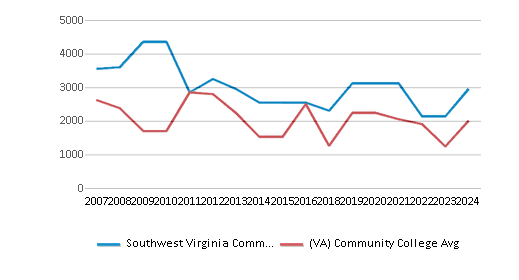
Student : Teacher Ratio
43:1
23:1
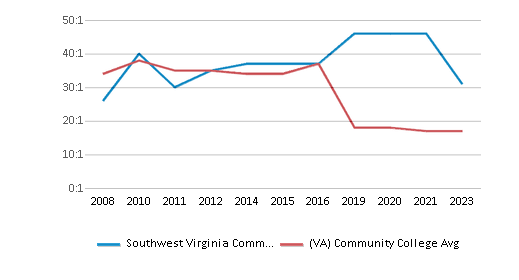
# Full-Time Students
1,183 students
637 students
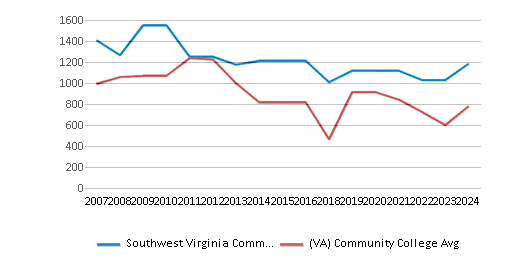
# Part-Time Students
1,762 students
971 students
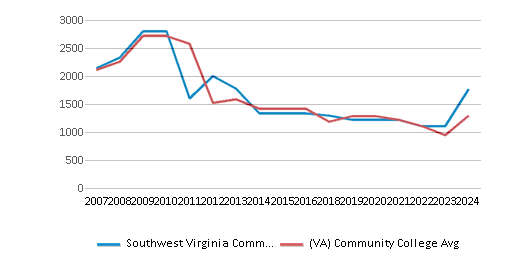
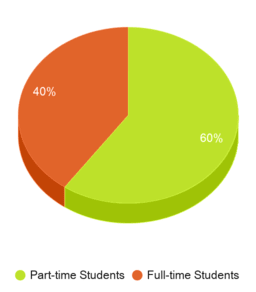
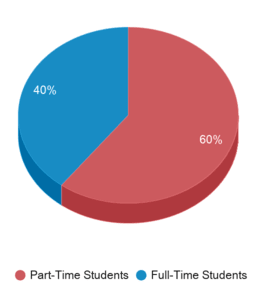
# Enrollment Undergraduate
294 students
314 students
# Full-Time Undergraduate Students
1,183 students
611 students
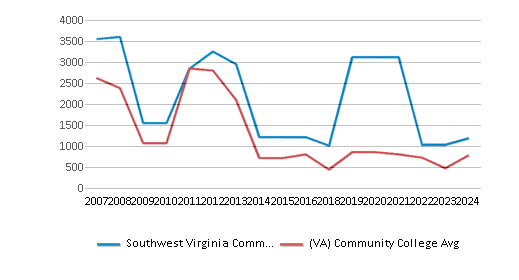
# Full-Time Graduate Students
n/a
158 students
# Part-Time Undergraduate Students
n/a
971 students
# Part-Time Graduate Students
n/a
61 students
Total Dormitory Capacity
n/a
476 students
% American Indian/Alaskan
n/a
n/a
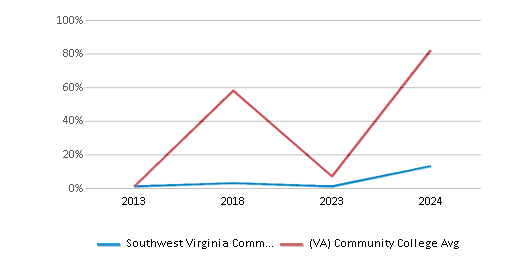
% Asian
1%
8%
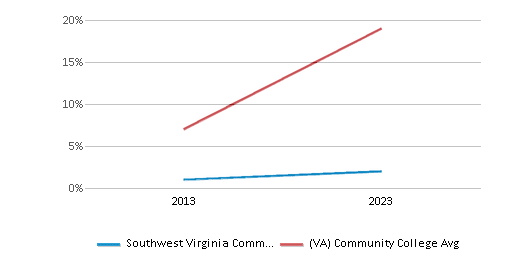
% Hispanic
2%
13%
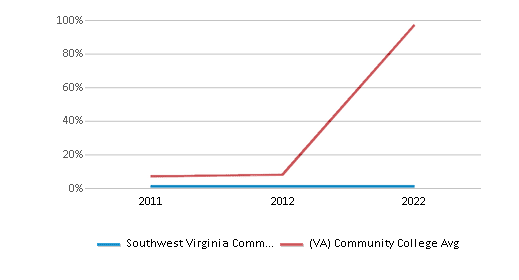
% Black
3%
21%
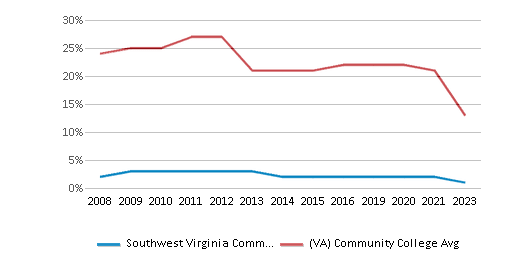
% White
87%
47%
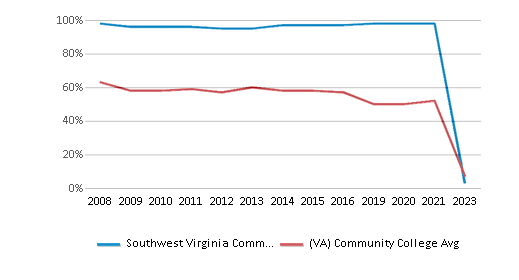
% Hawaiian
3%
n/a
% Two or more races
2%
5%
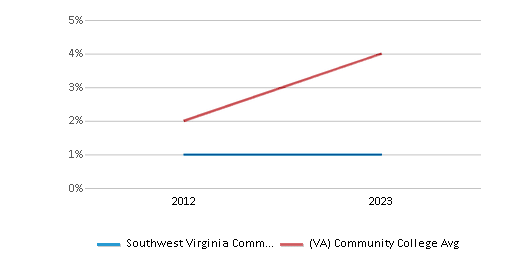
% Non Resident races
1%
2%
% Unknown races
1%
4%
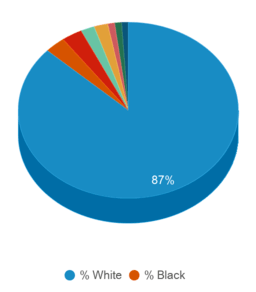
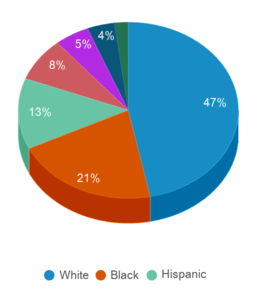
Diversity Score
0.24
0.71
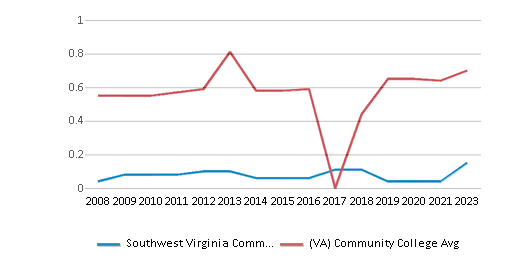
College Completion Rate (Students who graduate in less than 4 years)
0.4402%
0.4094%
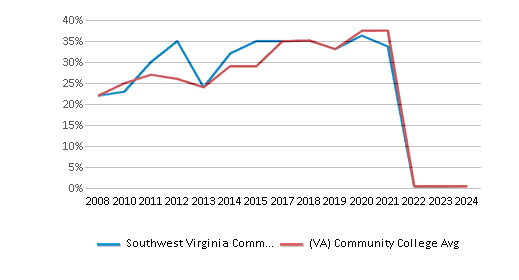
College Completion Rate (Students who graduate in 4 years or more than 4 years)
n/a
0.264%
Average Graduate Earnings (10 Years)
$27,500
$29,600
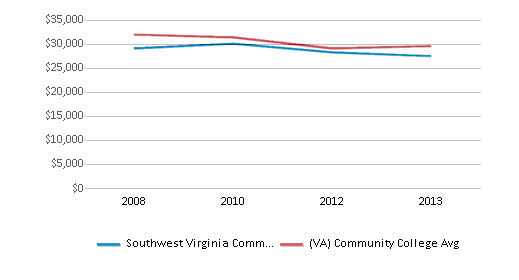
Tuition and Acceptance Rate
The public in-state tuition of $3,594 is less than the state average of $3,748. The in-state tuition has declined by 23% over four years.
The public out-state tuition of $7,996 is less than the state average of $8,977. The out-state tuition has declined by 25% over four years.
In-State Tuition Fees
$3,594
$3,748
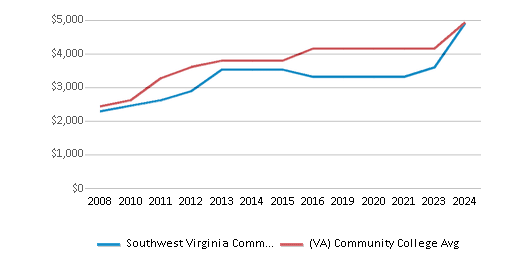
Out-State Tuition Fees
$7,996
$8,977
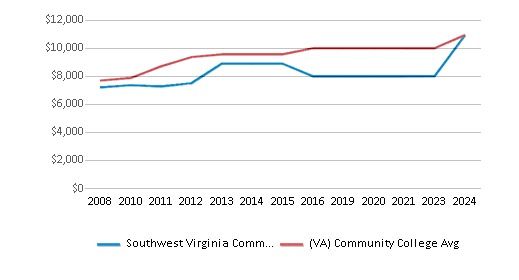
Tuition Notes
In-state tuition is $163.36 per credit hour. Out-of-state tuition is $363.46 per credit hour.
% Students Receiving Some Financial Aid
98%
78%
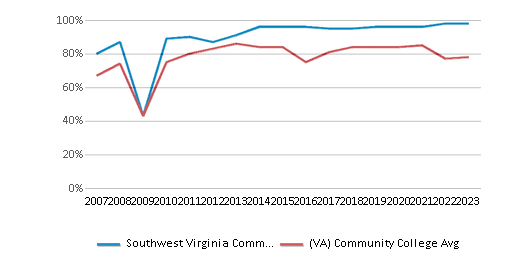
Median Debt for Graduates
n/a
$10,500
Median Debt for Dropouts
n/a
$5,500
Acceptance Rate
n/a
59%
Sports
Total Sports Offered
12 sports
Sports
Archery, Baseball, Basketball, Cheering, Cross Country, Dance, Golf, Soccer, Softball, Tennis, Volleyball, Wrestling
Extracurriculars
Total ExtracurricularsTotal Extra-curric.
21 extracurriculars
ExtracurricularsExtra-curric.
Club or Organization:
Campus Crusade for Christ, Epsilon Pi Tau, eSports, Helping Minds Club, Honors Club, Intervoice Club, Lambda Alpha Epsilon, Latent Image Club, Phi Beta Lambda, Phi Theta Kappa, Practical Nursing Club, Project Achieve, Red Cross Club, Registered Nursing Club, Student Government Association (SGA), Student Occupational Therapy Assistant Club, Student Veterans' Assocation, Take Action for the Benefit of Animals, The Game Room Club
Arts and Music Programs:
Music Club
Recreational Athletic Programs:
Southwest Adventure Team (Outdoor Club)
Campus Crusade for Christ, Epsilon Pi Tau, eSports, Helping Minds Club, Honors Club, Intervoice Club, Lambda Alpha Epsilon, Latent Image Club, Phi Beta Lambda, Phi Theta Kappa, Practical Nursing Club, Project Achieve, Red Cross Club, Registered Nursing Club, Student Government Association (SGA), Student Occupational Therapy Assistant Club, Student Veterans' Assocation, Take Action for the Benefit of Animals, The Game Room Club
Arts and Music Programs:
Music Club
Recreational Athletic Programs:
Southwest Adventure Team (Outdoor Club)
Source: 2024 (or latest year available) Integrated Postsecondary Education Data System (IPEDS) , School Administrators
School Notes
- Southwest is a part of the Virginia Community College System and is located in the southwestern portion of the Commonwealth of Virginia. Nestled at the foot of the majestic Clinch Mountains, SWCC has a campus of 100 acres of hills and rolling valleys. Southwest opened in 1968 and serves the counties of Buchanan, Dickenson (partial), Russell and Tazewell. SWCC is truly a comprehensive institution of higher education and offers more than 60 programs of study leading to the associate degree, diploma, certificate or career studies certificate. The College delivers programming to a wide range of business and industry needs through its off-campus sites, the continuing education division and instructional divisions of business and engineering technologies. Southwest Virginia Community College offers programs of traditional classroom instruction and technologically enhanced courses generally extending not more than two years beyond high school. Educational opportunities for adults and college-age youth include instruction in associate degree, diploma, and certificate programs, as well as in continuing education. Counseling services and other student development programs assist students with decisions on occupational, educational, and personal goals. The College is accredited by the Commission on Colleges of the Southern Association of Colleges and Schools to award the associate degree.
Frequently Asked Questions
How much does Southwest Virginia Community College cost?
Southwest Virginia Community College's tuition is approximately $3,594 for In-State students and $7,996 for Out-State students.
What sports does Southwest Virginia Community College offer?
Southwest Virginia Community College offers 12 interscholastic sports: Archery, Baseball, Basketball, Cheering, Cross Country, Dance, Golf, Soccer, Softball, Tennis, Volleyball and Wrestling.
What is Southwest Virginia Community College's ranking?
Southwest Virginia Community College ranks among the top 20% of community college in Virginia for: Least expensive tuition and Percent of students receiving financial aid.
School Calendar
View the Southwest Virginia Community College yearly calendar below.
Recent Articles

Obtaining Your Bachelor's Degree at a Community College
Explore the evolving landscape of community colleges offering bachelor's degrees, addressing affordability, accessibility, and workforce needs.

A to Z of Community College Certificates and Courses
From business and healthcare to technology and skilled trades, the article showcases the breadth of options available to students seeking to enhance their knowledge, develop new skills, or pursue career advancement.

What is a Community College?
This comprehensive guide explains what a community college is, its history, and its role in higher education. It covers the types of programs offered, differences from four-year colleges, benefits of attending, and important considerations for prospective students, providing valuable insights for those exploring educational options.

